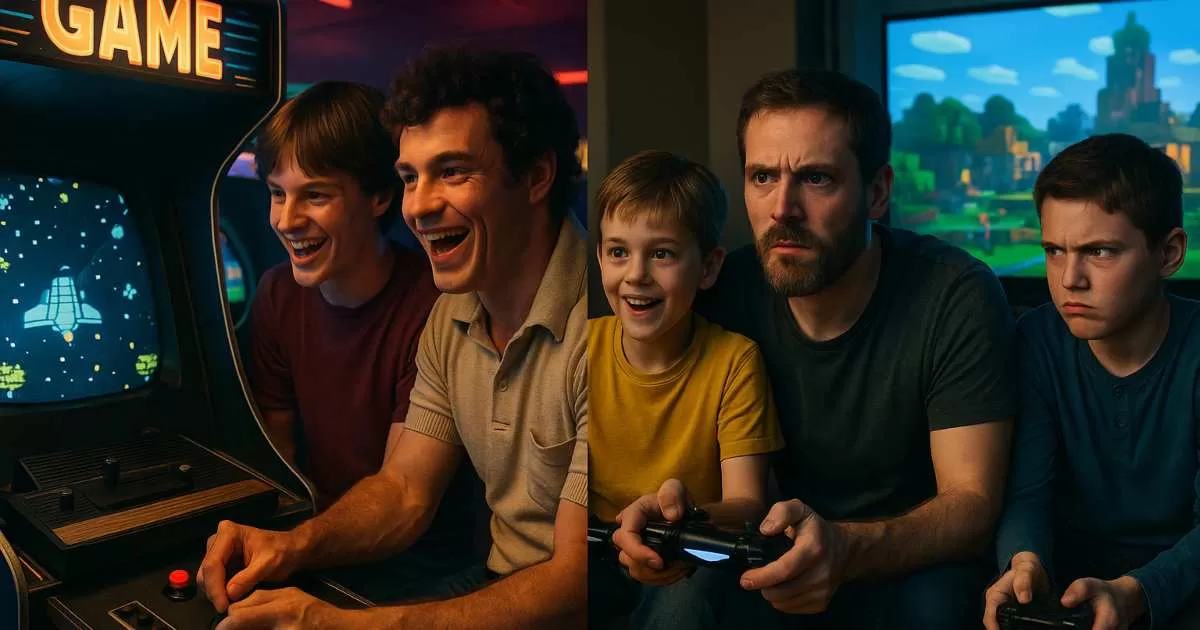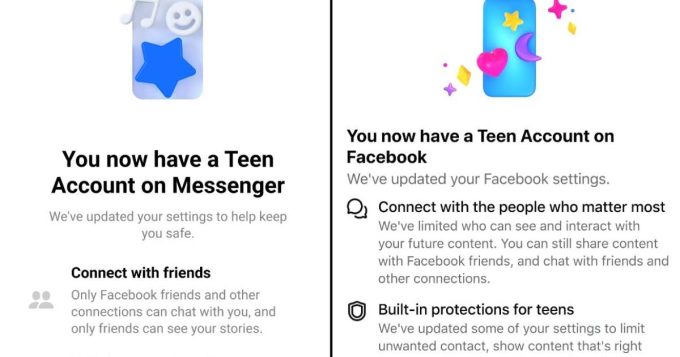From childhood arcades to Fortnite family feuds—one dad navigates the highs, lows, and boss battles of gaming across generations.
As an adman in his mid-forties, I have a confession to make. Advertising was not my first love. The truth is I’ve always been in a passionate relationship with gaming, and we never broke up! Long before today’s sleek consoles and online battles became the norm. It was love at first sight when the humble Atari 1 entered our living room, humming away on our old TV set.
It was the beginning, and I kept falling deeper in love with every new platform, title, and experience. One of my most cherished memories is sneaking out of our house on the hottest days of summer. My trusted number two – my younger brother and I, would troop over to the neighbourhood arcade – pockets jangling with loose change taken from my dad’s pockets the night before– spending hours trying to beat high scores on clunky machines.
We didn’t just play, we dominated, burning through every console that hit the market. Finishing thousands of games in the process. Our gaming adventures weren’t limited to consoles either. From Gameboys to the 486 computer my father bought us for educational purposes, I’ve gamed through it all.
As technology evolved, so did my choice of weapons and ammunition. Name any worthy title, and we’ve likely mastered it. My folks had probably given up after countless lectures on balance, perhaps they thought I’d change as my responsibilities increased.
That maybe one day I would grow up, get my first full-time job, and yet… I never really quit gaming. For me, it’s always been a form of therapy. A way to escape into new worlds, blow off steam, and bond with fellow gamers (siblings, friends, and even my own kids). The last five years featured a lot of Fortnite and Minecraft as a family. Which comes with its brand of adrenaline and a healthy dose of trash talk.
But let’s rewind a bit and talk about how gaming morphed from a purely fun pastime into a slightly more complicated affair. ‘Til about a year ago, I was a proud, cool, modern-day dad to two boys, 14 and 9, who enjoyed building gaming PCs with my boys.
Both my sons have also been in love with gaming for as long as I can remember. And like any great love story, it started innocently enough. With a pixelated farm of cows, creepers lurking around the corner, and my boys then shrieking in uncontainable excitement. Back then, Minecraft was our land of limitless possibilities. We’d hop in after dinner, build sprawling castles until midnight, and happily doze off, dreaming of the next big project. It was bliss in an 8-bit wonderland.
A Tale of Two Controllers
I’ll admit I was addicted–but a harmless kind of addicted, or so I told myself. Nothing compares to seeing your nine-year-old navigate a blocky labyrinth he created. Or watching your teenager meticulously design an underground fortress with serious strategic thought put into the defence structures.
Those nights, gaming was our love language. A time to connect, to be silly, and to test how long we could survive on digital crops alone. Between fights with pixelated skeletons and Endermen, we bonded as a family. That’s the power of gaming: it can be the best therapy in the world, a universal translator for parents and children alike.
But all love stories evolve. At some point, you realise your relationship is no longer the same – sometimes for the better, sometimes not. My kids started gaming with friends they met on unofficial servers and discovered a world far bigger (and far rowdier) than our cosy living-room co-op.
Suddenly, it was no longer just me they wanted to beat in Tekken; it was a brand-new clan of buddies halfway around the globe. The same games that had once been a source of fun family rivalry were now the cause of intense sibling rivalry.
Sneaky undercutting, stolen gear, and the horrifying prospect of being “noob-shamed” by friends turned once-upon-a-time patient siblings into squabbling adversaries. My once peaceful living room turned into a mini war zone: screaming, shouting – or worse—sullen silence and side-eye glares across the dinner table.

From Friendly Fire to Fiery Feuds
Online gaming has a sneaky way of multiplying your friend list—and your frustration levels. I’d tiptoe into their rooms to offer snacks and observe my younger son switching between chat windows like a stockbroker, reeling off phrases I couldn’t possibly decode.
My older one, meanwhile, was half the time trash-talking someone I’d never met and the other half begging me to buy him game credits. (One more ‘skin’ to show off to his friends. Who would’ve thought digital outfits could be so expensive?)
As the credit requests piled up, so did the arguments: “But Dad, everyone has it except me!” This, in turn, led to more heated battles than any tournament bracket could. I was stuck in a moral maze, didn’t want to ruin their fun – gaming does have its perks – but I was also witnessing the side effects: undone homework, dark circles under their eyes, and rushing through meals and prayers like they’re running a hundred-metre sprint.
I stood in the corridor and heard someone furiously mashing buttons, even though they were supposed to be asleep. It’s the perfect cliché: a father, arms folded, scowling at a closed bedroom door, muttering, “This has gone too far.” But it had. They’d begun to forget the toilet existed. They’d beg for “just one more minute,” which extended into four, which then jumped to 40, until I threatened to flick the main switch.
When Fun Becomes Toxic
I’ve heard people call this phenomenon “gaming addiction.” My kids prefer the term “being dedicated.” But tomato, to-mah-to– all I knew was that we’d crossed some kind of line between “having a good time” and “can’t keep track of time.”
Kids dive headfirst into competitive online gaming not just for fun, but because it’s a social badge of honour, a space where bragging rights are always on the line, and falling behind means fading out. Add to this the lure of microtransactions—power-ups, fancy costumes, special abilities—and you’re suddenly dealing with a parallel economy where your child’s self-worth might hinge on the next purchase.
Rediscovering the Pause Button
So I took a deep breath, mustered up my fatherly courage, and reminded myself of two things:
Gaming, in moderation, can be fantastic. Let’s face it – the problem isn’t the concept of gaming itself. It’s the way we let it consume our lives.
I am the dad here. And that means setting boundaries (even if they hate me for it momentarily).
Easier said than done, of course. We went through phases. One week, I tried the “no-gaming-until-homework-is-done” rule, which worked okay until they started rushing their homework to get to the console. Then came the “time-limit approach,” but policing every minute was exhausting for me and humiliating for them. Finally, I realised that, in essence, what we needed was communication, not just me barking orders like a grumpy sergeant.
Press ‘X’ to Talk It Out
One Sunday morning, while the boys and I were making breakfast, I launched the conversation: “Tell me why you love gaming.” They looked at me like I’d lost my marbles – wasn’t it obvious? Nonetheless, they indulged me. We spoke about the adrenaline rush, the camaraderie, and the sense of accomplishment after winning a match. They confessed they didn’t mean to neglect chores or skip meals; they just lost track of time. Out of that chat came four ground rules we all agreed on:
Designated gaming hours – Times of day that are “gaming green lights,” leaving the rest for homework, meals, and actual face-to-face communication.
Mandatory breaks during designated hours – When the alarm pings, it’s 10 minutes off-screen. Stretch, bathroom, a quick chat, a sip of water – anything.
Microtransactions to come out of their monthly allowance, which only gets paid by slabs based on our monthly performance appraisal.
Gaming hours = Outdoor times – this is something we often forget; getting the kids off their screens isn’t enough.
They weren’t thrilled at first—and honestly, they’re still not. But parenting is my job. Sure, we don’t follow the rules to the letter, but the changes have seriously improved both our home life and their overall gaming experience.

The Love-Hate Conclusion
I’m not going to pretend it’s all smooth sailing now. There are days I watch them sprint home from school, tear open a bag of chips, and vanish into their rooms, screens flickering like lighthouses in a storm. Every once in a while, I cave in and let them, because, well, they’re kids and life’s too short. We enforce the ground rules every single day—no matter how many dramatic eye-rolls or inevitable outbursts come our way.
So, do I regret our gaming legacy? Absolutely not. Sure, it’s complicated, sometimes exasperating, often hilarious—and yes, definitely addictive. But that’s love for you. I’m choosing to believe the benefits still outweigh the cons when we approach gaming mindfully. And who knows, maybe we’ll eventually figure it out once and for all… or maybe we’ll just keep levelling up in real life and the virtual world simultaneously. Because at the end of the day, we’re in this epic quest together, at least for now, and that’s alright!










